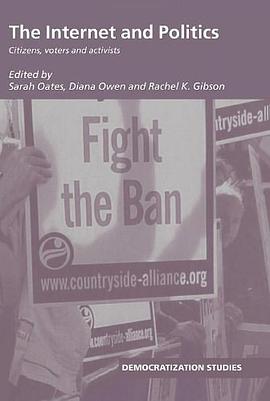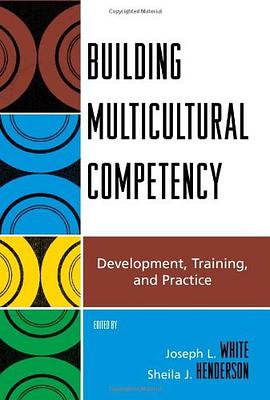

具体描述
Whether responding to a CNN.com survey or voting for the NFL All-Pro team, computer users are becoming more and more comfortable with Internet polls. Computer use in the United States continues to grow --more than half of all American households now have a personal computer. The next question, then, becomes obvious. Should Americans be able to use the Internet in the most important polls of all? Some advocates of Internet voting argue that Americans are well suited to casting their ballots online in political elections. They are eager to make use of new technology, and they have relatively broad access to the Internet. Voting would become easier for people stuck at home, at the office, or on the road. Internet voting might encourage greater political participation among young adults, a group that stays away from the polling place in droves. It would hold special appeal for military personnel overseas, whose ability to vote is a growing concern. There are serious concerns, however, regarding computer security and voter fraud, unequal Internet access across socioeconomic lines (the "digital divide"), and the civic consequences of moving elections away from schools and other polling places and into private homes and offices. After all, showing up to vote is the most public civic activity many Americans engage in, and it is often their only overt participation in the democratic process. In Point, Click, and Vote, voting experts Michael Alvarez and Thad Hall make a strong case for greater experimentation with Internet voting. In their words, "There is no way to know whether any argument regarding Internet voting is accurate unless real Internet voting systems are tested, and they should be tested in small-scale, scientific trials so that their successes and failures can be evaluated." In other words, you never know until you try, and it's time to try harder. The authors offer a realistic plan for putting pilot remote Internet voting programs into effect nationwide. Such programs would allow U.S. voters in selected areas to cast their ballots over any Internet connection; they would not even need to leave home. If these pilot programs are successful, the next step is to consider how they might be implemented on a larger scale in future elections.
作者简介
R. Michael Alvarez is a professor of political science at the California Institute of Technology and co-director of the Caltech/MIT Voting Technology Project. He is a nationally recognized expert on voting behavior and elections.
目录信息
2 Conventional Wisdom about Unconventional Voting
3 Representation and the Digital Divide
4 Internet Voting, Political Debate, and Policymaking
5 Security and Internet Voting
6 Analogies
7 Trials of Internet Voting
8 What Can be Done to Make Internet Voting a Reality?
· · · · · · (收起)
读后感
评分
评分
评分
评分
用户评价
我是一个对叙事结构要求极高的人,很多小说到了中段就会明显乏力,但这本书从头到尾都保持着一种令人窒息的张力。它最成功的地方在于,它构建了一个几乎无懈可击的封闭系统——一个看似完美、运作高效的投票平台,然后,作者只用了最微小、最容易被忽略的一个“错误”作为突破口,层层剥开,最终揭示出这个系统内部的腐朽和人性的弱点。那个关于“算法偏见”的章节让我印象极其深刻,它不是空泛的指责,而是通过具体的案例,展示了一个看似中立的程序是如何被设计者无形地操纵,从而影响成千上万人的选择。这种对幕后推手的描绘,极具讽刺意味。它让你不得不承认,最大的漏洞往往不在于硬件,而在于人心。这本书的结尾处理得非常高明,没有给出廉价的圆满结局,而是留下了一个开放式的、需要读者自己去填补的空间,这极大地延长了故事在读者脑海中回响的时间。
评分这本书简直是场视觉盛宴!我本来对这种看似高科技,实则可能枯燥的题材不抱太大期望,但作者的叙事功力让人刮目相看。开篇那个场景的描绘,细腻得仿佛我正站在那个拥挤的投票站,空气中弥漫着咖啡和紧张的气息。他对人物心理的捕捉尤其精准,那个年轻的志愿者从最初的踌躇满志,到后来面对系统崩溃时的那种近乎绝望的挣扎,简直让人感同身受。而且,这本书的节奏感把握得太棒了,它不是那种平铺直叙的流水账,而是像一首精心编排的交响乐,有舒缓的铺垫,也有突然爆发的高潮,尤其是当主角发现那个隐藏在代码深处的“幽灵”时,那种从心底升起的寒意,我读到凌晨三点都舍不得放下。作者似乎对细节有着近乎偏执的追求,无论是关于数据加密的描述,还是现场工作人员的微小动作,都栩栩如生。总而言之,如果你期待的是一部充满悬念、情感丰富且对当代社会现象有着深刻洞察力的作品,这本书绝对能满足你。
评分这本书的阅读体验,对我来说,更像是一场沉浸式的体验式学习,而不是单纯的消遣。作者在铺陈宏大叙事的同时,对于底层逻辑的梳理,细致到令人赞叹。我感觉自己像是跟着主角一起,从一个普通用户的角度,逐步深入到系统架构师、安全专家,甚至是政治幕后的操盘手的位置。它成功地将一个看似遥远、专业性极强的领域,转化成了一个充满戏剧冲突的舞台。我尤其欣赏作者对“时间压力”的精妙运用。每一次主角的突破,似乎都伴随着倒计时的滴答声,这种同步的压力感,让读者也一同进入了那种与时间赛跑的紧迫状态。它巧妙地利用了读者对“公平”的朴素愿望,然后用现实的复杂性去冲击它。这本书不仅仅是在讲述一个故事,它更像是一份给现代公民的“使用说明书”——告诉你我们正在使用的工具是如何被制造,以及如何可能被滥用。如果你对政治惊悚、技术伦理,以及人与机器之间微妙关系的探讨有兴趣,这本书是绝佳的选择。
评分这本书的语言风格,用一个词来形容,就是“冷峻的诗意”。它不像那些快餐式的惊悚小说那样追求廉价的刺激,而是通过一种近乎冷静的笔触,揭示出数字时代权力运作的冰冷逻辑。我尤其喜欢作者在描述环境变化时所使用的意象。比如,将数据中心的嗡鸣声比作“永不休止的低语”,将屏幕上的代码流比作“电子河流的潮汐”。这些描写不仅让场景更具画面感,也赋予了冰冷的技术实体一种难以言喻的神秘感和压迫感。更重要的是,作者没有将角色塑造成绝对的英雄或恶棍。即便是那些似乎站在对立面的人,你也能看到他们行为背后的逻辑和无奈,这让整个故事的张力更具层次感。它成功地避开了二元对立的陷阱,展现了人性在极端压力下的复杂光谱。读完后,我发现自己看待每一次日常的点击、每一次简单的确认,都会多一份审慎和深思。
评分说实话,我拿到这书的时候,心里是存着一丝怀疑的,毕竟“技术”和“人性”的结合往往容易写成两张皮。但这本书却奇妙地将两者熔于一炉。它没有过多纠结于那些晦涩难懂的编程术语,而是巧妙地将技术作为推动情节发展的催化剂,而不是最终目的。我特别欣赏作者处理“信任危机”的角度。在信息泛滥的时代,我们对电子投票系统的疑虑是真实存在的,这本书没有回避这种疑虑,而是将其放大,然后带领我们一步步探索真相。其中有一段描写主角团队如何在有限的时间内,对抗来自四面八方的质疑和阻挠,那种“在黑暗中摸索火种”的无力感,非常真实。这本书的结构设计也很有意思,它不是简单的线性叙事,而是穿插了大量的“幕后花絮”式的文档片段和访谈录,这极大地增强了故事的纪实感和可信度。它强迫读者去思考:在一个高度数字化的世界里,我们到底该把对公平的信心寄托在哪里?
评分 评分 评分 评分 评分相关图书
本站所有内容均为互联网搜索引擎提供的公开搜索信息,本站不存储任何数据与内容,任何内容与数据均与本站无关,如有需要请联系相关搜索引擎包括但不限于百度,google,bing,sogou 等
© 2026 book.wenda123.org All Rights Reserved. 图书目录大全 版权所有




















